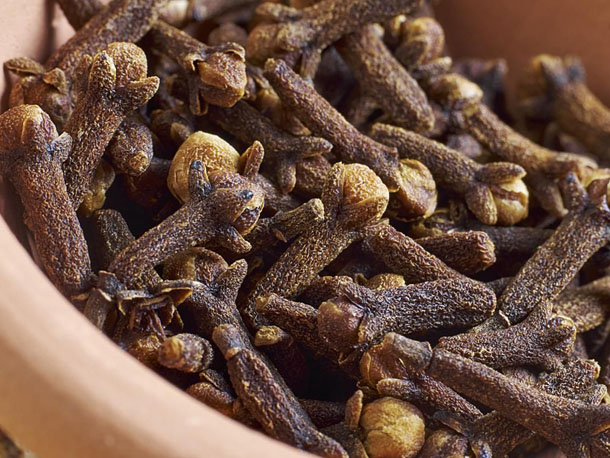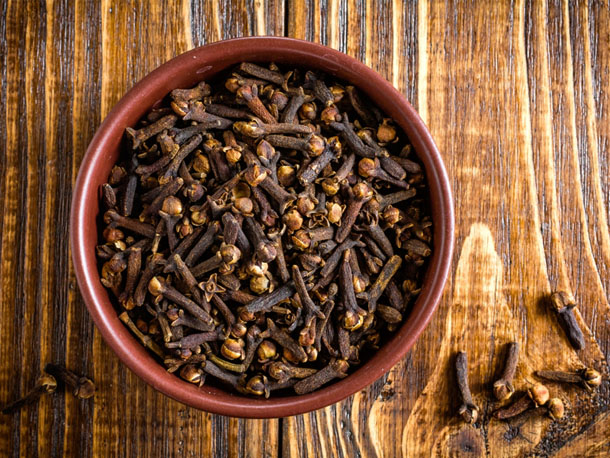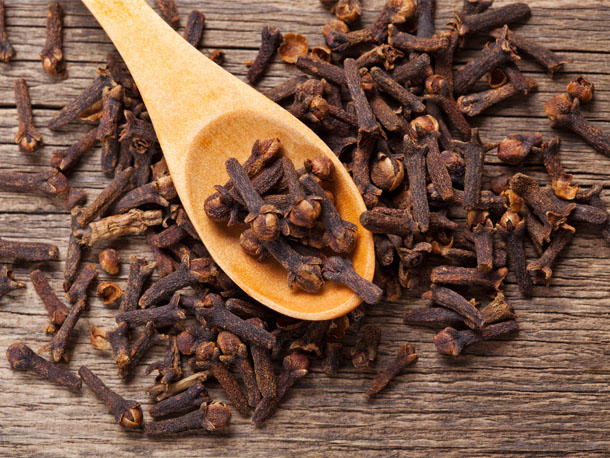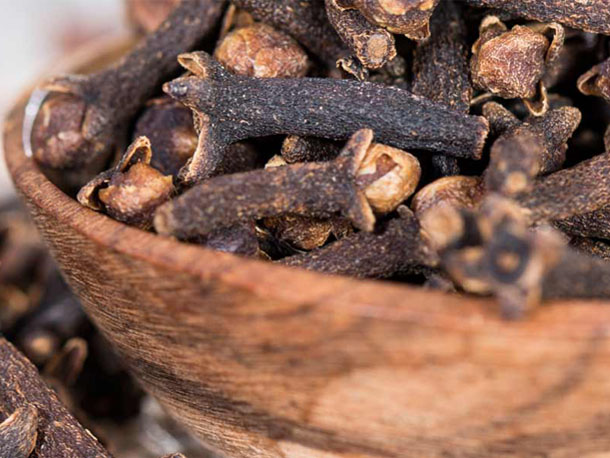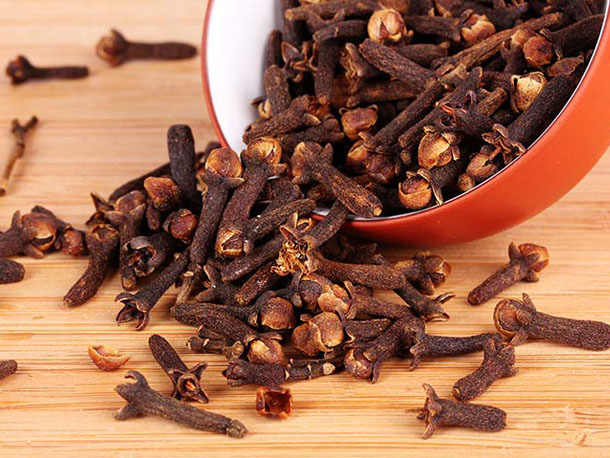Cloves market begins to revive
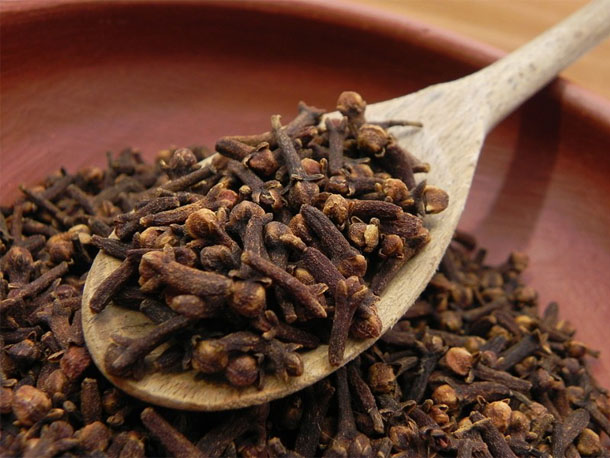
The international cloves market has shown signs of becoming active again as buyers look to cover in a market where overall availability is dwindling.
Emmanuel Nee, head of the ingredients department at French trader Touton, said most of the current buying he had seen was by countries in the Far East.
“It’s now becoming obvious that the Indonesian crop will be short by almost 35%, which seems to draw attention of Indonesian buyers which prefer to buy before the market may become much higher,” he added.
Gregoire Courme of French trader Aromatum was in Madagascar on a business trip. “The local price is increasing regularly and in my opinion the market is on a speculative trend. In fact, some shippers are convinced that Indian buyers will come back soon in the market, because they did not buy since middle of January. They would have to renew their stocks. Moreover, the Singaporean traders are still buying even if the requested prices are below the current cost prices. It might be a sign that kretek manufacturers might come back in the market,” he explained.
Nee said that based on the estimates for Indonesia’s 2015 crop, the projected 30-35% decline would imply a total 2016 output from this origin of around 65,000-70,000 tonnes.
Courme said he had heard mention of a similar Indonesian crop figure of “around 60,000 tonnes” and noted that there were reports that the Indonesian crop would arrive late. He did also acknowledge that it was very difficult to obtain accurate information on the outlook for Indonesia.
Potential upward pressure ahead
Nee observed that Indian buyers so far are not fully back to the market as they are “digesting” huge purchases they made earlier and they were also closing their accounts on March 31 for the end of the current fiscal year. “However, once they realise that Indonesia is a buyer and they may get simply no more cloves to buy, I believe they can come back to the market which will definitely push prices up,” he added.
The US and EU are not covered well at all either, but volumes bought in these two areas are obviously much less than what Indonesia and/or India can buy, Nee noted.
Courme remarked that he viewed the market in Europe as mostly quiet at the moment. “Currently, it seems better to buy a small quantity from European resellers than a full container from origin,” he said.
He added that earlier reports had suggested that the Madagascar crop should be good in the north – if the weather until June is not too wet – and an average one in the south. However, on Tuesday the CTHT (Centre Technique Horticole de Tamatave, which translates as the horticultural technical centre of Tamatave) had confirmed to him that it was too early to know if the next crop would be good or not in the north.
“Currently the quantity of buds on cloves trees is good, but they might become leaves if the weather is rainy during the next two months,” he explained.
In the meantime, the largest Malagasy shippers are building stocks, Courme observed.
Nee warned that owing to the cyclical nature of cloves production, Madagascar’s November 2016 crop is expected to be disappointing.
There are still a few lots left available from the Comoros 2015 crop and prices on Comoros cloves have eased slightly of late. Comoros will start harvesting its next crop by the end of May/early June, for availability of dried cloves to be shipped in early July for an estimated arrival in EU destinations from the end of the summer holiday period onwards. “It should be a reasonable crop of 3,500-4,000 tonnes,” Nee predicted.
Zanzibar was said to be fully sold out of its 2015 crop as was Brazil.
Juliano Camara of the Fortaleza, Brazil, office of Amberwood Trading confirmed that Brazil was at the end of its season but was predicted to have a good crop in November/December of this year.
Moves to raise quality
Meanwhile, efforts were under way to improve the cleaning of cloves and thereby achieve an overall better quality. “I am involved in this project with one of the shippers and we want to encourage the sellers to clean better. The cloves in Brazil are very nice but what is happening is that the middlemen are trying to be too smart by somehow adding foreign matter to the material that comes for export,” Camara explained.
Amberwood Trading is therefore looking to purchase cloves directly from Brazilian farmers and then undertake the cleaning of cloves for export or buy from the middlemen and take on the cleaning of the cloves. Another option has been to pay a higher price to the middlemen so that they are willing and able to do the cleaning of the cloves themselves.
Camara suggested that these measures will take place for the 2016 crop. “For a long time Brazilian cloves have been treated as bad material in the market,” he observed. “That is why prices are more than USD1,000 (per tonne) lower than those of Madagascar.”
Camara added that recent offers he had seen on Madagascar cloves were at USD8,700/tonne c&f whereas Brazilian cloves were in the range of USD7,300-7,500/tonne c&f Singapore/Dubai.
“This year’s crop (harvested in November/December 2015) has been one of the worst in quality,” he remarked. As indicated, this is due to the malpractice of middlemen who are bulking up consignments by adding foreign matter.
The net result is a very volatile market, Camara noted. There has been some demand from Pakistan and Latin America – including Colombia and Mexico – but minimal coverage from Singapore traders.
Trade estimates put Brazil’s 2015 crop at around 3,500 tonnes compared with a failed crop in 2014 and about 7,000 tonnes in 2013. “So we are expecting again a big crop,” Camara said.
The outlook for Zanzibar’s next crop in July/August is unclear at this stage but Nee noted that there are no real signs of a bumper crop ahead for this origin.
Sri Lanka’s 2016 crop, which is due to arrive soon, is reported to be not a good one and Nee suggested that whatever Sri Lanka produces will be taken up by India.
Nee predicted that even though macro-economic factors are currently preventing a major upsurge in cloves prices there remains a strong possibility of an active market in the coming weeks and increasing prices as currently seen in Madagascar in anticipation of a possible flurry of Indian purchases this month.
Nee indicated Madagascar and Comoros cloves at EUR8.40 (USD9.56) per kilo cif EMP; USD8,750/tonne cif Singapore; USD8,800/tonne cif Indian ports; and USD9,350/tonne cif US.
Courme gave prices of USD8,600-8,700/tonne fca for Madagascar cloves to Singapore and USD9,000/tonne fca for shipments to Europe.

